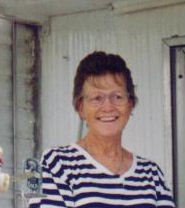John Masefield
The West Wind.
It’s a warm wind, the west wind, full of birds’ cries;
I never hear the west wind but tears are in my eyes.
For it comes from the west land, the old brown hills,
And April’s in the west wind, and in daffodils.
It’s a fine land the west land, for hearts as tired as mine,
Apple orchards blossom there, and the air’s like wine.
There is cool green grass there, where men may lie at rest,
And the thrushes are in song there, fluting from the nest.
“Will ye not come home brother? Ye have been long away,
It’s April, and blossom time, and white is the may;
And bright is the sun brother, and warm is the rain,
Will ye no come home, brother, home to us again?”
“The young corn is green, brother, where the rabbits run,
It’s blue sky, and white clouds, and warm rain and sun.
It’s song to a man’s soul, brother, fire to a man’s brain,
To hear the wild bees and see the merry spring again.”
Larks are singing in the west, brother, above the green wheat,
So will ye not come home, brother, and rest your tired feet?
I’ve balm for bruised hearts, brother, and sleep for aching eyes.”
………says the warm wind, the west wind full of birds cries.
The white road westwards is the road I must tread
To the green grass, the cool grass, and rest for heart and head,
To the violets and the warm hearts and the thrushes. Song…
In the fine land, the west land, the land where I belong.
It is lines his poem “Sea Fever” that have made John Masefield, for many people,
Yet, he wore uniform during the first world war and worked on the battlefields of the
John Masefield who was to become
For John the area was a paradise and one in which he was soon to be joined by two brothers, Henry and Charles, who were to make up the family of five along with his elder brother and sister.
John lost his mother at an early age who was weakened by the birth of her sixth child. He lost his beloved grandparents and lastly his father.
John was then raised by his Uncle William, married but childless who now took on the burden of the family. John was removed from
It was Kate who suggested that John go to sea, as the Royal Navy was too expensive John found himself in the autumn of 1891 joining the merchant marine training ship Conway, which had been converted to instruct boys who wished to become officers, and was moored on the Mersey River, Shipboard life could be brutal, but for all the misery John was to look back on that time with certain gratitude writing,
I shall always be glad of my short sea time. It was real naked life…At sea you get manhood knocked bare, and it was a fine thing, a splendid thing.
He was stuck down with sunstroke and hospitalized, then returned to Ledbury as a Distressed British Seaman.
His Aunt Kate did not accept that her was unwell and branded him as unable to “stick it’. She insisted he went back to sea He obtained a place on the Barque Bidston Hill which was at that time in
He was lucky enough to be offered a job in a saloon which then led to him moving on to carpet mill in
He discovered Chaucer, Keats Shelley which seemed to lead him back into the paradise he had once known.
By now he was writing poetry and sending it to his beloved sister Ethel still in
John wrote in 1002 Salt water Ballads, which was compared to Kipling’s Barrack room Ballads. This did not please John Masefield as her felt that Kipling glorifies the imperial dream. John’s collection sold pout in six months.
Within the year John who was 24 met and married Constance de la Cherios-Cromelin. Eleven years older than him and a graduate of Newnham Cambridge.
John and Constance were to have two children Judith born 1904 and Lewis born 1910. Work and more work became the order of the day for John
When 1st world war broke out John was too old for active service but found a position with the red cross working in
John’s work from World war one led to many books and a steady career of writing. He enjoyed great success in the literary world as a much renowned writer and poet.
The end came on
Although this seems a very fitting place for such a poet as he, it would have been far more fitting to have had his ashes scattered to the four winds and carried over the English countryside in whichever direction the wind willed.
John had been a poet of the sea, a patriot, a storyteller, a poet of the common man, and not least, a soldier poet.
Excerpts from a writing by Christopher Starling



16 comments:
Thanks Margaret, poets and poetry intrigue me greatly, when they are stories told in poetry it's fascinating how well the story is told - it's good to read something like this , real, about the person...
I've never been into poetry so unfortunately don't know a lot of the great names but I did find this poets' life story to be quite interesting! Thank you so much for sharing it:-) xox
A wonderful post, Margaret, in tribute to a great poet and storyteller...thanks. :)
Hi Margaret ~~ Very interesyig story of John Masefield's life. He didn't have it easy did he? I guess it is an honour to be buried in Westminster Abbey, but it was not what he wanted.
Though he may have been pleased, had he known. I had read the poem before.
Thanks for your comments and I am glad your mother read to you and you read to your kids. Take care, my friend, Love, Merle.
Dear Margaret Nice poem, and story on John Masefield its a shame his last wish wasnt carried out but an honour to be put to rest in Westminster Abbey. Take care have a great weekend. Jan
Interesting history. Although I recognize Chaucer, Keats and Shelley, I am not familiar with John Masefield. Thatnks for the great story!
I liked the poem,thanks for sharing the rest with us.I write some poems.have put them in a book,some day may try to get them published.God bless.
I think my teenagers would agree with his aunt Kate that intellectual pursuits ARE indeed the work of the devil. :)
Lovely poetry. Thanks for the "devilish" history lesson to go with it. :) :) :)
Thanks for that, Margaret.
I wasn't familar with John Masefield but I wished I had of been before visiting Westminster Abbey.
A lot of very famous writers have their graves there, mostly in the floor that people walk on.
I did know a lot of them by their works.
..
Brilliant post Margaret- l actually thought about doing one on John Masefield myself-lol.
What do they say about great minds thinking alike? :)
Thanks for the information and l love this poem!
Bests and hugs x
I enjoyed reading your post Margaret. Sorry I haven't been by. We have had my Auntie visiting for the last fortnight. Its been crazy, crazy...!!
Take care xx
Hi Margaret..
I'm not into poetry but I enjoyed the read.
Thanks also for your visit,stay well talk soon
Margaret,
I enjoyed reading this history of this poet. And the poem also.
Oh! And the Buddy Holly song was very nice to hear!
Junie
Great post, Margaret, thanks for the info. I am a lover of poetry.
Have a fabulous weekend.
Take care, Meow
I've known Sea Fever since I was in school but didn't know much else about him. Thanks and thanks for your comment tonight.
Hurry up, Margaret...it's time for you to come out and play again! :)
Post a Comment